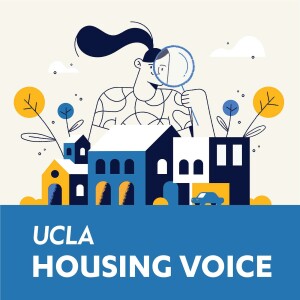
Ep 56: Property Rights and Public Health in Nairobi, Kenya with Singumbe Muyeba
 2023-08-09
2023-08-09
Download
Right click and do "save link as"
Studies in Latin America show that “secure tenure” —- protections against displacement by the government — can encourage resident-led development and economic growth in slum areas, as well as improve public health. Is the same true in the African context? And what happens if the government also provides quality, affordable housing along with secure tenure? Singumbe Muyeba joins us to share the results of his research on a slum upgrading program in Nairobi, Kenya.
Show notes:
- Muyeba, S. (2023). Property rights and health for the urban housing poor in Nairobi: Evidence from a phased-in natural experiment. Journal of Urban Affairs, 45(3), 590-615.
- Bah, E. H. M., Faye, I., Geh, Z. F., Bah, E. H. M., Faye, I., & Geh, Z. F. (2018). The housing sector in Africa: Setting the scene. Housing Market Dynamics in Africa, 1-21.
- Vogl, T. S. (2007). Urban land rights and child nutritional status in Peru, 2004. Economics & Human Biology, 5(2), 302-321.
- Galiani, S., & Schargrodsky, E. (2004). Effects of land titling on child health. Economics & Human Biology, 2(3), 353-372.
- Galiani, S., & Schargrodsky, E. (2010). Property rights for the poor: Effects of land titling. Journal of Public Economics, 94(9-10), 700-729.
- Monkkonen, P. (2012). The demand for land regularisation: Theory and evidence from Tijuana, Mexico. Urban Studies, 49(2), 271-288.
- Monkkonen, P. (2016). Where do property rights matter more? Explaining the variation in demand for property titles across cities in Mexico. World development, 88, 67-78.
- Episode 32 of UCLA Housing Voice with Diego Gil on Chile’s “Enabling Markets” policy, which the World Bank and others advocated for other developing countries.
More Episodes
012345678910111213141516171819
Create your
podcast in
minutes
- Full-featured podcast site
- Unlimited storage and bandwidth
- Comprehensive podcast stats
- Distribute to Apple Podcasts, Spotify, and more
- Make money with your podcast
It is Free
- Privacy Policy
- Cookie Policy
- Terms of Use
- Consent Preferences
- Copyright © 2015-2024 Podbean.com





